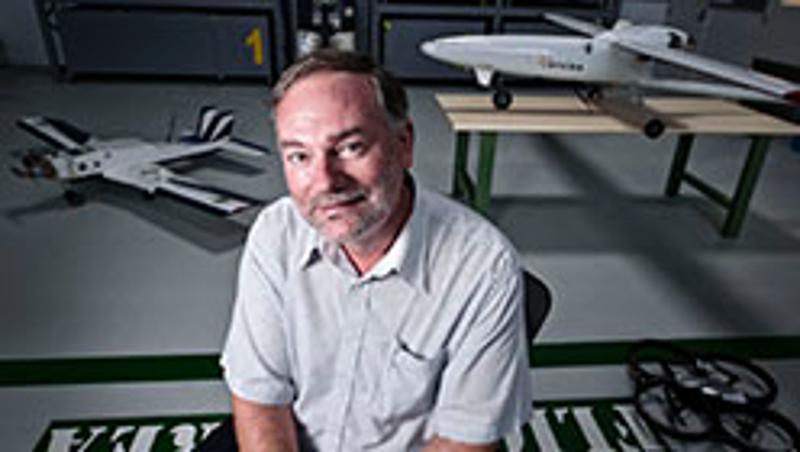
A QUT-led aerospace research facility, based in Brisbane, is the first facility of its kind in Australia to be granted CASA certification to fly unmanned aircraft (UA).
The Australian Research Centre for Aerospace Automation (ARCAA) conducts research into all aspects of aviation automation, with a particular research focus on autonomous technologies.
ARCAA Director, QUT Professor Duncan Campbell, said the Centre had now received a CASA UAV Operators Certificate to fly unmanned aircraft in Australian airspace to further advance research in the applications and airspace integration of unmanned aircraft. This follows a recent CASA decision that all research organisations must be certified for unmanned aircraft operations for research purposes.
Professor Campbell said CASA had now certified more than 180 commercial operators, most of which were small businesses.
"ARCAA is the first research centre to undergo the CASA certification process, a move that is indicative of our professional attitude towards this area of research and this emerging industry," he said.
Professor Campbell said while the current certification enabled ARCAA to fly unmanned aircraft below 400 feet and within a visual line of sight, he hoped eventually to secure approvals for higher altitude and beyond visual line of sight in safe circumstances.
"Achieving this initial approval opens up the possibility of further approvals to come," he said.
"It is important that there are regulations and approval processes in place to ensure safety at all times, and ARCAA is not only intent on upholding these regulations but is actively researching the measures that need to be put in place to develop regulations to enable unmanned aircraft to play a greater role, particularly in relation to disaster management and search missions."
Professor Campbell said QUT led Project ResQu, a $7 million two-year project funded by the Queensland Government, QUT, CSIRO, BR&T-A and Insitu Pacific, which fast-tracked the development of key smart technologies to enable unmanned aircraft to fly safely in the civil airspace.
"This research will ultimately enable unmanned aircraft to provide public services such as assistance in disaster management and recovery, as well as in environmental, biosecurity and resource management."
Media contact: Rose Trapnell, QUT media team leader, 07 3138 2361 or 0407 585 901 rose.trapnell@qut.edu.au




